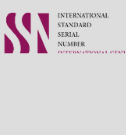Impact of Low Dose Aspirin in Prevention of Preeclampsia in Low Risk Nulliparous Primigravida Women
Keywords:
Nulliparous, Hypertension, Obesity, Primigravida, preeclampsiaAbstract
Background: Preeclampsia remains one of the most important challenges in obstetrics. Antiplatelet agents, such as aspirin (acetylsalicylic acid), are among the most promising candidates for prevention of preeclampsia.
Objective: To determine efficacy of low dose aspirin in prevention of preeclampsia in low risk primigravia women.
Methods: This descriptive Case Series Study was done at Gynecology and Obstetrics Department, MCH Unit 1 PIMS Hospital, Islamabad. Patients presenting at MCH Unit 1 were recruited. Women were given 75 mg of aspirin daily and followed according to the usual schedule typically every 4 weeks until 26 to 28 weeks of gestation every 2 to 3 weeks until delivery. At each visit women’s blood pressure, weight and urinary protein excretion was measured. Urinary protein was measured with dipstick in a fresh mid-stream urine sample. Data was entered and analyzed in SPSS.
Results: A total of 175 pregnant women with primigravida were successfully followed till delivery in this study. Mean age of women remained to be 27.51±4.74 years with age range of 20 to 40 years. Frequency of obesity, family histories of hypertension and preeclampsia were also noted and found to be 32.0%, 100.0% and 19.4% respectively. Mean blood pressure with respect to weeks of pregnancy revealed a linear upward trend. Urinary protein by dipstick method was observed at every prescribed visit of pregnant women. Preeclampsia was diagnosed in 31(17.7%) of low risk group females. Higher age, family history of preeclampsia with first degree relative have been found to be significantly associated (p-value <0.05) with occurrence of preeclampsia among nulliparous women.
Conclusion: A higher number of nulliparous women with hypertension and/or preeclampsia amongst first degree relative are predicted to suffer from preeclampsia after 20 weeks of gestation. Further higher nulliparous age is also found a significant risk factor in this study. Obesity is also a risk factor of preeclampsia but not remained significant in this study.
Downloads
Downloads
Published
Issue
Section
Categories
License
Copyright (c) 2024 Chronicles of Biomedical Sciences

This work is licensed under a Creative Commons Attribution-NonCommercial 4.0 International License.



